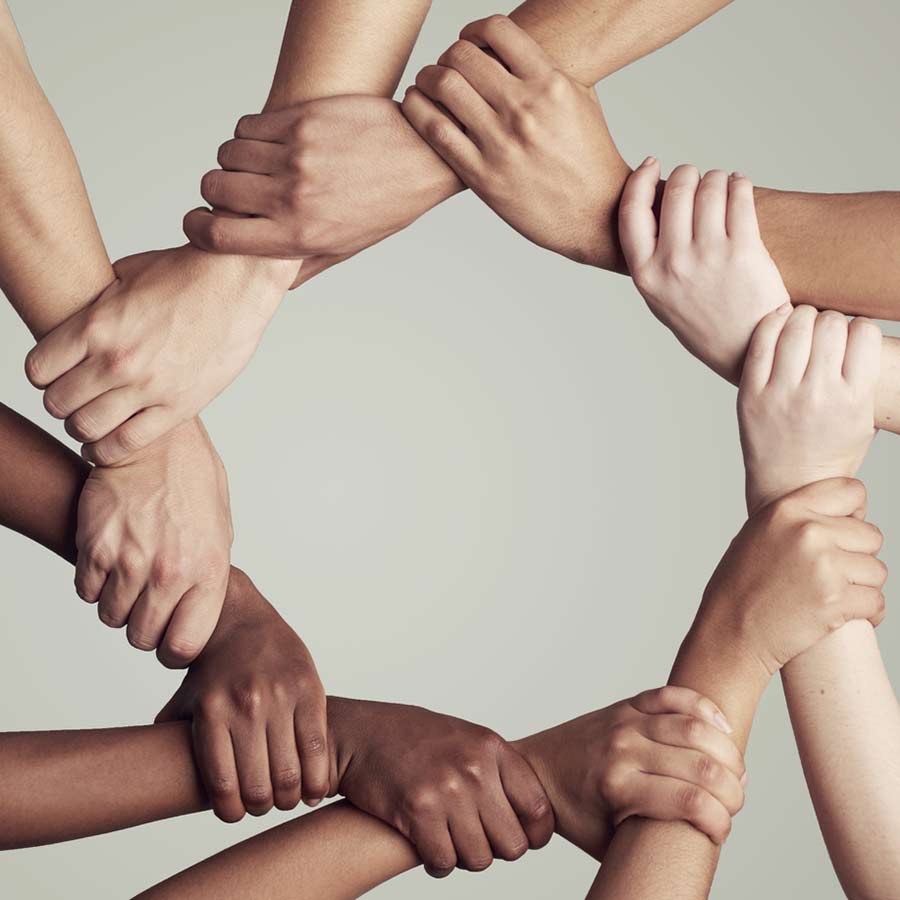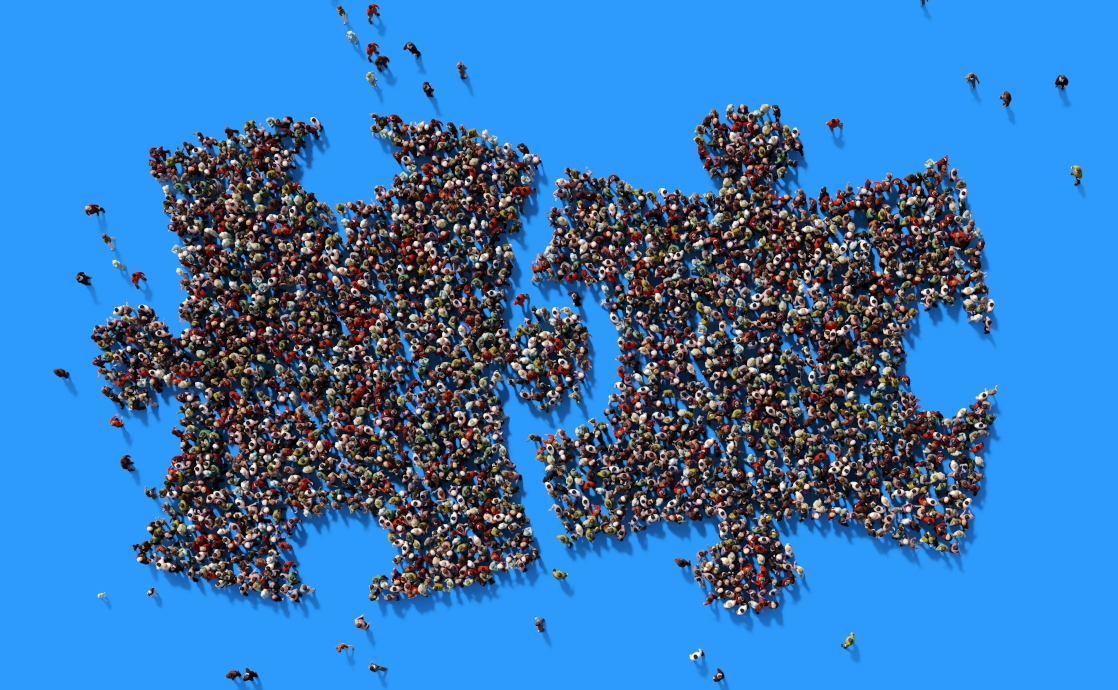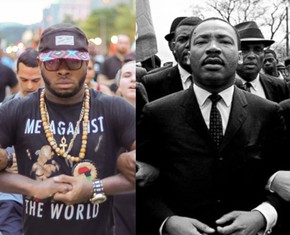The views expressed in our content reflect individual perspectives and do not represent the authoritative views of the Baha'i Faith.
How do we move towards a more inclusive reality beyond the trappings of adversarial partisan politics?
We might want to try these six unity-building principles from the Baha’i teachings. They aren’t answers in themselves, but rather they suggest a new way of looking at the world that can allow for diverse people to contribute to a dynamic process of community transformation.
1. The Oneness of Humanity is a Universal Truth
We as a human race are increasingly coming to recognize our oneness. We are one interconnected human family in the most literal sense: genetic studies prove that every one of us is a distant cousin to every other human being on Earth. We live on one common planetary homeland and share one common biosphere, and we are now living in a moment of intensifying global interdependence. Pollution and war in one part of the world causes ripples that effect every other part of the planet, whether by contaminating a shared water source or by displacing millions of people across borders. We are so deeply connected it is as if we are the cells of one body, and if one part of the human body is sick or distressed, the rest of the body will suffer as well. We need a new model of social organization, so recognizing the fundamental truth of humanity’s oneness is paramount.
2. Humans Have the Capacity for Cooperation
The idea that humans are essentially selfish and must fight for power over others is part of the fabric of the world’s political life. But humans aren’t intractably corrupt, selfish, and aggressive; we also have the capacity for cooperation, reciprocity, and mutual service. What we need, now more than ever, are forums for community development that revolve around consultation and mutual respect. We must seek out new models of governance that reflect the human capacity for altruism.
3. Diversity is Necessary for Unity

Unity does not mean uniformity; instead we need diversity to bring new perspectives and innovation to solving our complex problems. Through a Baha’i model, the voices of those who have been historically the most marginalized must be brought to the center. The colonial and imperial projects that have oppressed masses of people over hundreds of years have their legacy in social structures that still value the privileged few. Real social prosperity can’t be realized until we have a framework that incorporates diverse voices from all segments of society into the work of governing human affairs.
4. Social Change Demands Universal Participation
Today people all over the world are mired in a culture of expecting the “experts” to solve our problems: waiting for elected politicians or other community leaders to make things right. How can we empower each other to see ourselves as agents of change within our local communities and focus on the positive change we can each contribute to? How can we break free from the false dichotomies of “the advanced” and “the backward”, the “developed” and the “underdeveloped?” All people must have a seat at the table, because each person is the real expert of his or her life.
5. History can be Reframed
Just like the development of an individual through stages of infancy, childhood, and adolescence, humanity has evolved from a “childhood” of independent tribal societies through an “adolescence” of more complex and integrated national communities. We now stand at the cusp of a collective coming of age: the emergence of a truly global civilization. More and more, we can see the emergence of worldviews that emphasize humanity’s unity and oneness. Some people still cling to the old narratives that say, “it always has been and always will be this way,” but we are living through a time of advancing global interdependence that has never been seen before. Now everyone on Earth has the choice to learn to accept responsibility for the welfare of the entire human family.
6. Humans Have Both a Spiritual and Material Dimension
Our spiritual dimension is as important our material dimension, and we desperately need social structures that provide for the development of both. This is not an assertion of a particular religious ideology. Rather, it expresses the idea that many people do feel love and connection to the Earth, to other humans, and to that unknowable essence that some people call God. Beyond having basic material necessities for survival, people need spiritual healing. People need to feel loved. The development of spiritual qualities such as love, justice, trustworthiness, patience, and gratitude, help us to connect authentically with each other and to contribute to social progress.
Moving Beyond the Political Divide
The solutions to the complex problems we face will not come easily, and they can’t be reduced to simple slogans. The reality of unity will only emerge organically, in relation to how well we as citizens build authentic bonds of trust, conquer our prejudices and establish new forums for true collaboration.
Baha’u’llah, the prophet and founder of the Baha’i Faith, warned us:
How long will humanity persist in its waywardness? How long will injustice continue? How long is chaos and confusion to reign amongst men? How long will discord agitate the face of society?… The winds of despair are, alas, blowing from every direction, and the strife that divideth and afflicteth the human race is daily increasing. The signs of impending convulsions and chaos can now be discerned, inasmuch as the prevailing order appeareth to be lamentably defective. – Gleanings from the Writings of Baha’u’llah, p. 216.
We can consume our time rallying against the continual assaults of a defective model of governance, or we can devote our energies towards promoting a new set of values and a new way of relating.
More than ever, we need to replace outdated modes of thought and behavior with a worldview that recognizes the oneness of humanity.
You May Also Like
Comments

















I've even seen divides forming within the third parties of the US along the two-party line, with those in the third party who are more critical of the Republicans finding themselves adversaries of those in the third party who are more critical of the Democrats.
Even the third parties these days aren't immune from the Left/Right division.